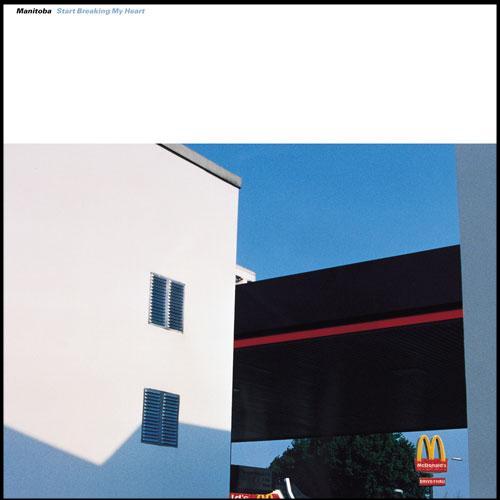At some point in your life, you might have gone through a phase of wondering what you would name yourself if you had the power to do so. Maybe you took a hard stare in the mirror and tried to figure out what name looked like it would suit you. Maybe you picked one and practised writing it down, to see how it felt.
Musicians are in the unique position of being allowed (even expected) to choose a stage name; a new identity that they get to adopt when they’re making art. It’s like being a superhero.
So imagine the disappointment and frustration of being told that the name you chose for yourself, the name you brainstormed and agonized over and said out loud to yourself and sketched out logos for… imagine being told you’re not allowed to use that name anymore.
That’s what happened to Dan Snaith.
His debut album, Start Breaking My Heart, was released under the moniker Manitoba in 2001. He followed it up with Up In Flames in 2003, and had started attracting attention in the blossoming Canadian independent music scene.
And then an aging American punk rocker named Richard Manitoba threatened to sue. In a 2005 interview, Snaith was asked why he chose to change his name rather than engage in legal action:
Interviewer: How is it he [Richard Manitoba] was able to do this when he’d never released anything under the Manitoba name and the name itself also refers to a Canadian province (hence presumably being within the public domain)?
Snaith: It turns out that the facts of the case didn’t matter very much at all. In the US the deciding factor is who can afford to pay $500 000 to a lawyer to fight a case like this. I obviously couldn’t pay anything like that and somehow he had a very reputable lawyer working for him for free. Sadly that was what decided it. When I think about it now though, even if I could have somehow afforded to fight it the last thing I want to do is spend a couple years of my life fighting some bitter old dude over our assumed stage names and hanging out with trademark lawyers.
Now I don’t claim to know why Richard Manitoba demanded the change, but maintaining his artistic integrity doesn’t seem like a likely motive. Far be it from me to judge a book by its cover, but Richard Manitoba’s Wikipedia photo doesn’t give the impression of a guy who has much integrity, artistic or otherwise, to maintain. I swear I can smell stale cigarettes just looking at that photo. Oh, and earlier this year he was arrested for domestic assault, so there’s that.
But before I start sounding like a bitter old dude myself, I should get back to Dan Snaith.
He walked away from the whole thing, found a new name (Caribou) that sounds just as Canadian and even more whimsical than his previous name, and continued to make creative, compelling, award-winning music.
All of which should remind us of an obvious, but important, fact: a thing’s name is not the thing itself.
What makes this a beautiful song:
1. The opening minute comprises a wavering synth and fluttering digital artifacts. Easy to understand how this debut album was compared to Boards of Canada and Four Tet.
2. Every two bars, the snare drum hits one-sixteenth earlier than the beat, as if it’s just a bit over-eager.
3. It’s named after Snaith’s hometown, which itself has changed names a couple times. Originally called “Coote’s Paradise,” it switched to Dundas in the 1800s. It was then absorbed into the larger neighbouring city of Hamilton in 2001; the same year this song was released. If anyone deserved to immortalize a town that doesn’t technically exist anymore, it’s Manitoba.
I mean, Caribou. Dan Snaith. Or whatever.
Recommended listening activity:
- Open phone
- Go to “contacts”
- Find your favourite person
- Change their name to whatever it is you like best about them
